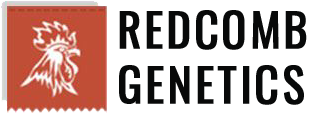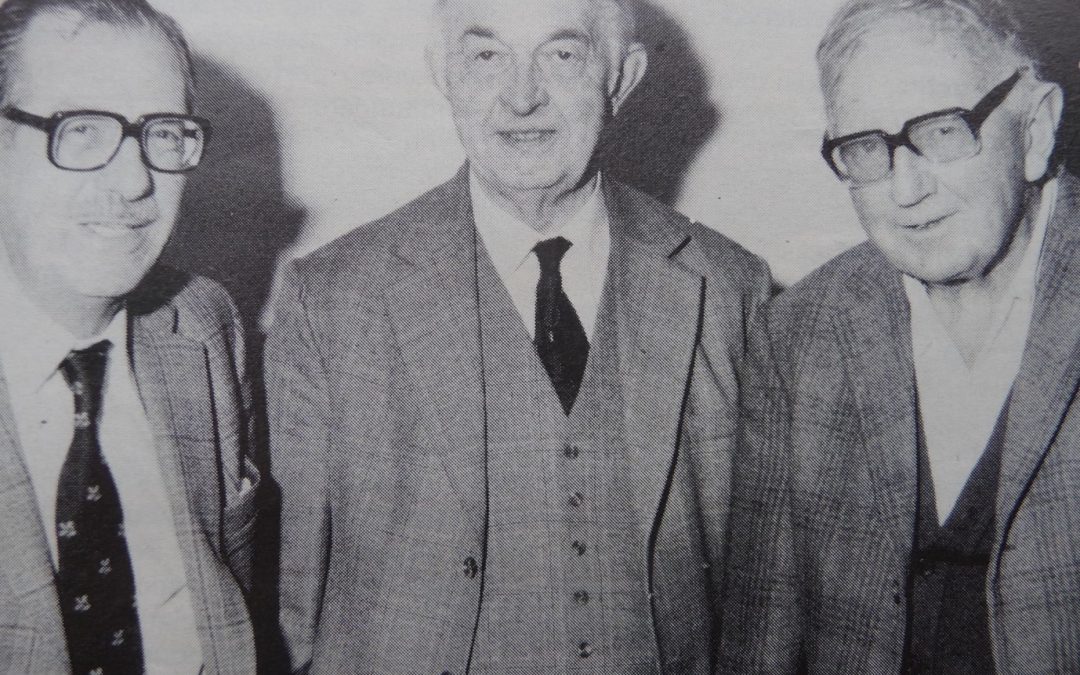Frank and Geoffrey Sykes were large scale Wiltshire farmers who started a free range laying unit at Tytherington during the war. A manager, Tom Curtis, was brought in to manage it and small sales were made to local farmers. A breeding program was started in 1947 using the nucleus breeding system. This breeding system was proposed by A.L. Hagedoorn and outlined in a book published in 1953 titled “Poultry Breeding” with Geoffrey Sykes as co-author. In the same year Geoffrey Sykes undertook a fact finding mission to America and on his return produced a broiler based on Sussex x Rhode Island Red; this was the first large scale crop of broilers grown in the UK. Geoffrey Sykes became an evangelist of American farming methods. Frank Sykes did not feature in the media and his name does not appear in company publications or national newspapers.
After studying agriculture at Harper Adams, Geoffrey Sykes developed an intense interest in commercial animal breeding. In 1946 he visited the U.S. with a study group sent to investigate the rapidly growing poultry industry. Subsequently he was the recipient of a Nuffield Scholarship in 1952 to study at the Harvard Business School. He returned with some Babcock WL hatching eggs from which six hens and four cocks were hatched. The Sykes acquired the Barley and Golden RIR strains and mixed them to produce the Sykes RIR strain. When crossed with the Babcock WL the “hybrid” produced eggs in profusion. The cross was called the “Hybrid 3” and was an immediate success. In the late 50’s demand outstripped supply. To satisfy demand several sire lines were used and when the progeny made up a significant number of a shipment the flock was susceptible to Marek’s disease. It was later found that the when the Babcock WL male, although susceptible itself, was used in a cross with the Sykes RIR the hens were as resistant to Marek’s as competitors stocks. By the time it took to make all the layers of the cross new Hybrid 3, the country was moving to brown eggs and Warren sales were rising rapidly. In a bid to counter falling sales Sykes took on a Hy-Line product in 1964 and later the H&N Nick Chick, without any success. Nevertheless Sykes produced the best of the British bred birds in the 60’s and 70’s. By 1970 his layers had won more Random Sample Tests in Britain than any other breeder and had won the French Government Test for three years consecutively.
The Sykes brothers also had a 90 acre farm near Salisbury. It was a former Army camp and equipped with 30×9 meter Nissen Huts. And it was here that the broiler breeding and growing enterprise started. At the outset in 1954 following his return from the US he grew flocks of 4000-5000 broilers, at that time the largest flocks to be produced. A company F&G Sykes (Wessex) was set up and several broiler strains were tested and marketed but these did not prosper. A broiler Development Manager, Ian W.N. Smith was appointed and a link with Pilch Breeding Farms Inc, Hazardville, Connecticut was established. At a meeting in London in September 1967, attended by broiler groups and nutritionists, hosted by Sykes and Pilch, Chester Pilch announced the establishment of a pure line breeding and research farm in Eire. Sykes had been taking an increased interest in broilers had their own Irish Breeding HQ mainly involved in the supply of parent stock to broiler groups. The Pilch Irish development meant genetic improvements could be undertaken in Eire, and the Sykes GP replacements can be sourced locally without the need for additional imports. And Pilch had a strategic base to service and supply their breeding stock operations in Europe and the Middle East. The Pilch farm produced male and female replacements for the Pilch grandparents for the production by Sykes of Sykes-Pilch broiler parents.
In 1964 in spite of record sales financial difficulties lead to a Board shake-up. The Melbray Group paid some bills and got a seat on the Board. In 1967 they took full control of the company. In 1971 the Melbray Group were themselves taken over by Tremletts Holdings Ltd. However this company did not like what emerged when they saw all the details and just before the end of the financial year in 1972 the company was sold to the Ross Group.


